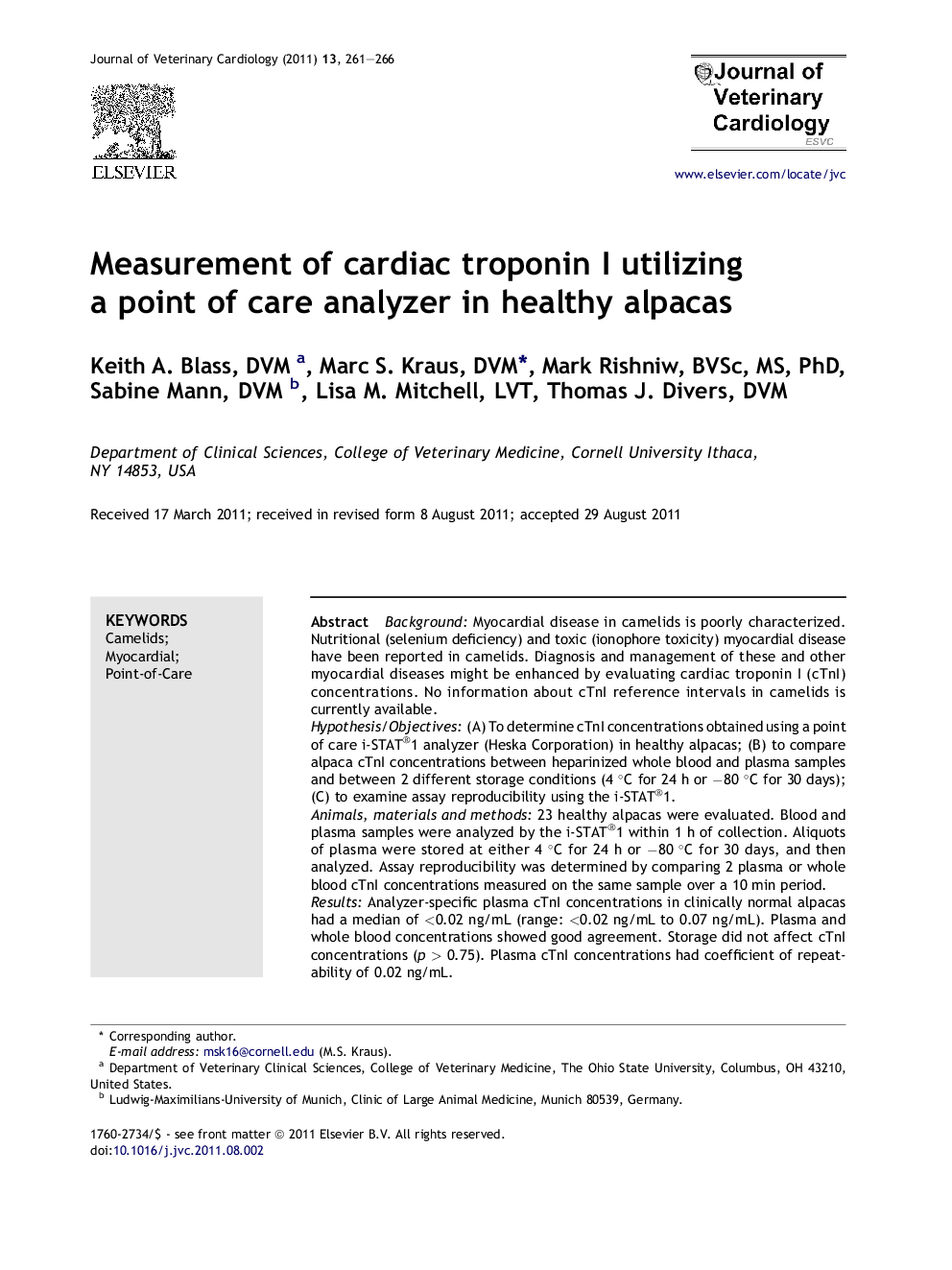| Article ID | Journal | Published Year | Pages | File Type |
|---|---|---|---|---|
| 2400317 | Journal of Veterinary Cardiology | 2011 | 6 Pages |
BackgroundMyocardial disease in camelids is poorly characterized. Nutritional (selenium deficiency) and toxic (ionophore toxicity) myocardial disease have been reported in camelids. Diagnosis and management of these and other myocardial diseases might be enhanced by evaluating cardiac troponin I (cTnI) concentrations. No information about cTnI reference intervals in camelids is currently available.Hypothesis/Objectives(A) To determine cTnI concentrations obtained using a point of care i-STAT®1 analyzer (Heska Corporation) in healthy alpacas; (B) to compare alpaca cTnI concentrations between heparinized whole blood and plasma samples and between 2 different storage conditions (4 °C for 24 h or −80 °C for 30 days); (C) to examine assay reproducibility using the i-STAT®1.Animals, materials and methods23 healthy alpacas were evaluated. Blood and plasma samples were analyzed by the i-STAT®1 within 1 h of collection. Aliquots of plasma were stored at either 4 °C for 24 h or −80 °C for 30 days, and then analyzed. Assay reproducibility was determined by comparing 2 plasma or whole blood cTnI concentrations measured on the same sample over a 10 min period.ResultsAnalyzer-specific plasma cTnI concentrations in clinically normal alpacas had a median of <0.02 ng/mL (range: <0.02 ng/mL to 0.07 ng/mL). Plasma and whole blood concentrations showed good agreement. Storage did not affect cTnI concentrations (p > 0.75). Plasma cTnI concentrations had coefficient of repeatability of 0.02 ng/mL.ConclusionsThe i-STAT®1 can measure cTnI in alpacas on both plasma and whole blood and provides similar values for both samples. Storage at 4 °C for 24 h or −80 °C for 30 days does not affect estimates of plasma cTnI. Evaluation of cTnI might be of value in assessing cardiac disease in this species.
